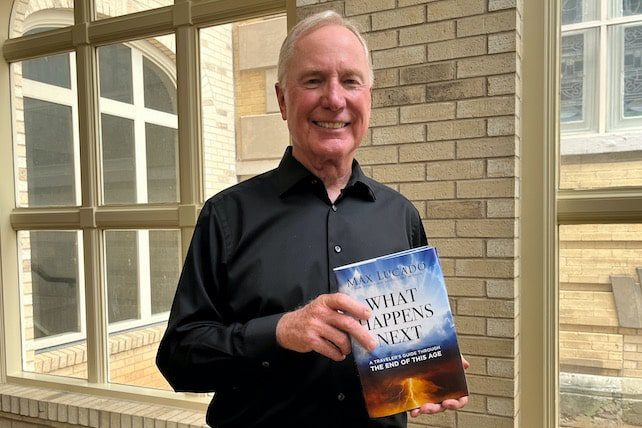Pastor and author Max Lucado has changed his mind on the end times and now accepts some views that are distinctive of dispensationalism. He joined Dr. Ed Stetzer on “The Stetzer ChurchLeaders Podcast,” where Lucado explained some of the reasons why he came to change his mind on this topic.
“I don’t know if I have tidy answers to your questions,” Lucado told Stetzer. “But in the case of eschatology, I began to sense that my position that I had been taught to embrace, amillennialism, it didn’t answer some of the promises that God made, at least to my satisfaction.”
Max Lucado: Don’t Avoid Difficult Scriptures
Max Lucado is teaching minister at Oak Hills Church in San Antonio and the author of more than 145 million products in print. His latest book is, “What Happens Next: A Traveler’s Guide Through the End of This Age.”
In a previous conversation on “The Stetzer ChurchLeaders Podcast,” Lucado shared that he came to change his mind on speaking in tongues. In their conversation about the end times, Lucado explained to Stetzer how he has worked with his elders when he has changed his views on theological issues, and the two also discussed navigating our current political climate.
RELATED: Speaking in Tongues Is Now Part of Max Lucado’s Regular Prayer Time
The reasons why Lucado’s thinking on the end times changed include the promise that Jesus will sit on the throne of David, as well as some of the prophecies in the Old Testament, such as those in Isaiah.
“I just couldn’t find them being realized apart from a millennial kingdom,” said Lucado. “So I said, ‘Ok, I want to go back and re-study this.’ And about the same time, our church leadership said, ‘Could you lead us in a study of the Book of Daniel?’”
Lucado and Stetzer agreed that the first six chapters of Daniel are “easy” and a “delight,” but the later chapters are much more difficult. However, after going through that book again, Lucado concluded, “I think I’ve misread some of this prophetic teaching. And that led me then to open up my mind to the possibility that there is going to be a thousand-year reign of Christ, the possibility of a rapture, the possibility of even rewards in heaven.”
He clarified that by rewards he did not mean he thinks we are “saved” because of rewards but that we are “recognized according to our works.”
When Stetzer asked if we are in the end times right now, Lucado answered, “I think we are.”
“Tell me what that means,” said Stetzer.

